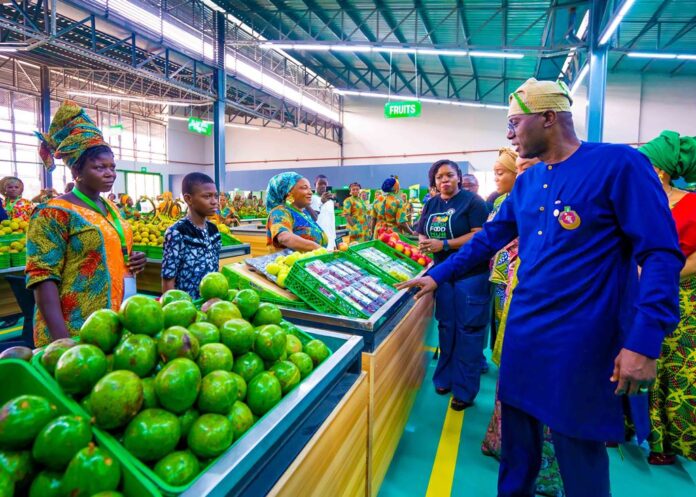n Abuja, the escalating cost of food and transportation is hitting residents hard, forcing many to make difficult choices just to survive.
With the price of essential food items climbing steeply, families are facing a daily struggle to put meals on the table.
Many residents attribute these hardships to the recent increase in the price of Premium Motor Spirit (PMS), commonly known as petrol, which has affected transportation costs across the country.
The rising expenses have transformed once-manageable budgets into burdens, causing distress among the people of Nigeria’s capital city.
“I often sit at my kitchen table, staring at an empty pot,” said Maryam Abusaid, a mother of three.
According to her, a bag of rice that cost ₦50,000 last year now costs over ₦100,000, a price she simply cannot afford.
“With my husband’s salary barely keeping pace with inflation, I often have to choose between meals and essential household items,” she explained.
The financial strain has become unbearable for civil servant Ekaite Obot, who has not been able to drive to work or church for the past five months.
“For over five months now, my car has remained parked because I can no longer afford to fuel or maintain it,” she lamented.
Obot shared that her husband lost his job, leaving her with the responsibility of paying school fees, covering household expenses, and feeding the family.
“I struggle to pay school fees, buy household items, and put food on the table,” she added.
Many residents are now looking to the government for help, urging them to address the soaring food and transportation costs.
Mrs. Mary Umeh, another civil servant, revealed that her main source of relief is a local contribution scheme, known as “adashi.”
“Every month, I contribute with some colleagues, and at the end of the year, we use the money to buy essential household items,” she said.
With Christmas approaching, Umeh is relying on her adashi savings to get by, as she has no other means to prepare for the festive season.
“I am hopeful that the adashi will help us manage this Christmas,” she shared.
For small business owners, the situation is no less dire.
Albert Nwakama, a trader in second-hand clothing, popularly known as “okrika,” said he has seen a drastic drop in sales.
“I have not experienced anything like this since I began this okrika business nine years ago,” Nwakama said.
The few customers who used to buy in bulk now barely come to his shop, and some even ask for loans to feed their families.
“People are struggling to eat and care for their families, so buying clothes is no longer a priority,” he noted.
Nigerians in various sectors of society are feeling the pinch, with many turning to alternative means to cope with the relentless economic pressure.
Nneka Azubuike, a teacher, admitted that the high cost of living has led her to forge closer ties with wealthy families in her classroom.
According to Azubuike, she pays extra attention to children from affluent homes, hoping for appreciation from their parents.
“I know this is unprofessional, but I have to take care of my child because I am a single mother, and my salary barely covers our needs,” she confessed.
She, like many others, had hoped that the recent inauguration of the Dangote Refinery would bring relief to fuel prices and, in turn, transportation costs.
“The government must address these transportation costs because they impact every sector of the economy, especially food prices,” she urged.
For commuters like Ibrahim Idris, the rising cost of transportation has drastically affected his ability to manage other household expenses.
“I used to spend about ₦400 commuting to the office daily, but now I pay between ₦900 and ₦1,000,” he said.
According to him, despite cutting down on expenses, the situation remains challenging.
Another resident, Mr. Sule Adams, a vendor, echoed similar sentiments, explaining that he too has seen a decline in business.
“Most customers who used to buy goods in bulk now buy smaller quantities, as they cannot afford to store food like they used to,” Adams said.
He expressed concern over the decline in sales, which is affecting his ability to provide for his own family.
Ms. Christabel Nicholas, a small business owner, faces the difficult choice of either raising her prices or losing customers.
“I have had to increase my prices due to the high cost of items, but my regular customers are complaining,” she said.
Nicholas emphasized the need for government intervention, saying, “Nigerians are sick, hungry, suffering, and dying.”
According to recent data from the National Bureau of Statistics (NBS), the Consumer Price Index (CPI) showed a steep rise in food inflation, recording a 40.53% increase on a year-on-year basis as of April.
By July, the NBS reported that the headline inflation rate had risen by 9.32% compared to the previous year, a jump attributed to rising costs of goods and services.
These figures paint a grim picture for Nigerian families, who are struggling to meet even their basic needs as prices of food and transportation continue to surge.

